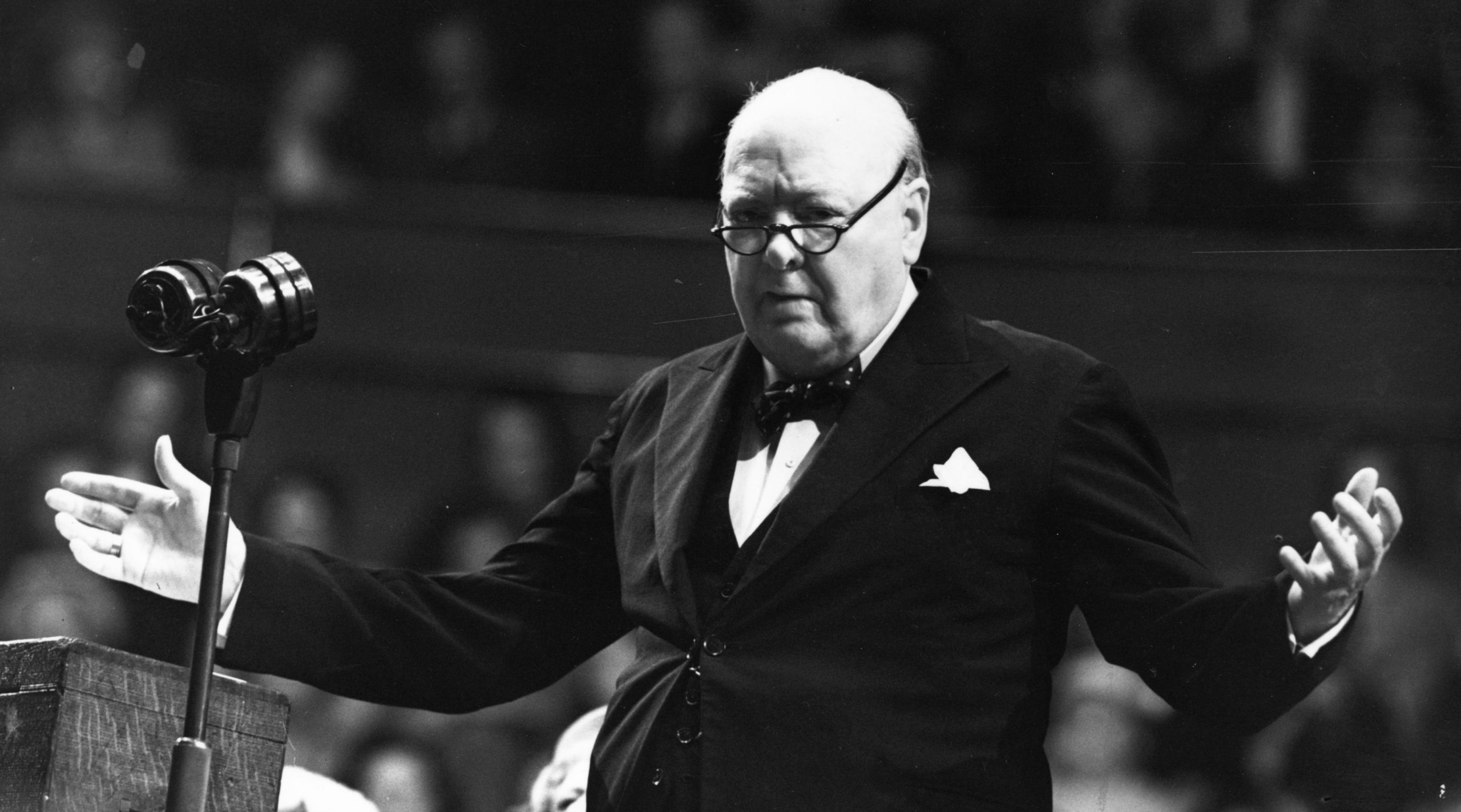Manchester, 1906. “Fancy,” said Winston Churchill, born in the largest stately home in England, when canvassing with a friend as he considered an especially drab row of houses, “living in one of those streets, never seeing anything beautiful, never eating anything savoury — never saying anything clever!”
Never saying anything clever is the motto of the Churchill industry today. It should be stamped on all the participants’ heads. Last week Tariq Ali released Winston Churchill: His Life, His Crimes. You have already read it. Older readers may have read it the first time in 1970, when Robert Rhodes James published his comprehensive Churchill: A Study in Failure.
An older reader, one who lived through the events of Churchill’s life, would have known what these books and many others tell us: Churchill was a bounder, a serial failure, terrible at small talk, deluded, depressive, drunken, deficient in judgement, and systematically racist enough to be compared by his Secretary of State for India to Adolf Hitler.
But — put on some Elgar! — he must be defended. It’s just a shame that the swords flying out of scabbards are so rusty. Churchill was a “towering figure”, said a panto-incredulous Piers Morgan on his unloved show a few days ago, “coming under increasing attack from the woke brigade.”
It’s amusing to think of pickled-undergraduate Left-wing academics as being part of a “brigade”, as if they were all about to march off to Ukraine to be used as cannon fodder. Anyway, Piers’ guest was Douglas Murray. “They basically find him guilty of some Victorian attitudes,” he blinked. “Well, surprise, surprise if you’re born in Victorian England you might have some Victorian attitudes.” The trouble with this argument is that Leo Amery, Churchill’s previously mentioned Secretary of State who was so appalled by his views that he compared him to Hitler, was also born in 1873. Hmm.
Regarding their dedication to humourlessness, Churchill would have found his defenders as embarrassing as his detractors. “Gush, however quenching, is always insipid”, he once remarked.
The critics are wide of the mark too. Ali, Priyamvda Gopal, and the rest make the mistake of casting Churchill in a morality play. If the British public cared about morality, three quarters of the occupants of Number 10 in the last century never would have become Prime Minister. Churchill instead appealed to voters’ courage, endurance, willpower, greed, and desire for glory. He wasn’t judged on his personal morality. He would have been much better at Marxist agitprop than Tariq Ali.
The most damning thing that can be said of Churchill — ignored by defenders and detractors alike — is that he failed on the terms he set for himself. Churchill did not have God, but he did have the British Empire. The goal of his life, and his political creed, was its defence.
His defence failed. Churchill was born in Rome; he died in Italy. Being the saviour of Western civilisation, as his supporters rightly claim, meant nothing to him unless that the West was built around the Empire.
Generally, the shortest chapters in any Churchill biography are the last ones. It is not inspiring to read about a stroke-prone Churchill torpidly sailing around the Mediterranean, or dozing off in spooky St James’ clubs, gloomily rambling about nuclear war, convinced of his own defeat, an old man, without any hope for Britain or the world. “I have worked very hard and achieved a great deal” he used to say, “only in the end to achieve nothing”.
There was no Tennysonian spirit left in him to fight against the tide. He had a near-astral sense that Britain was finished. To watch the dumbo back and forth over his legacy is to suspect that he was right. Churchill’s last coherent words in 1964 were: “I’m so bored of it all.” If only he were alive now.










Join the discussion
Join like minded readers that support our journalism by becoming a paid subscriber
To join the discussion in the comments, become a paid subscriber.
Join like minded readers that support our journalism, read unlimited articles and enjoy other subscriber-only benefits.
Subscribe